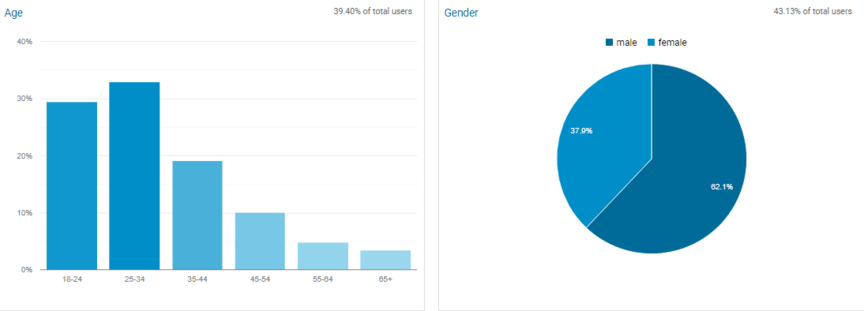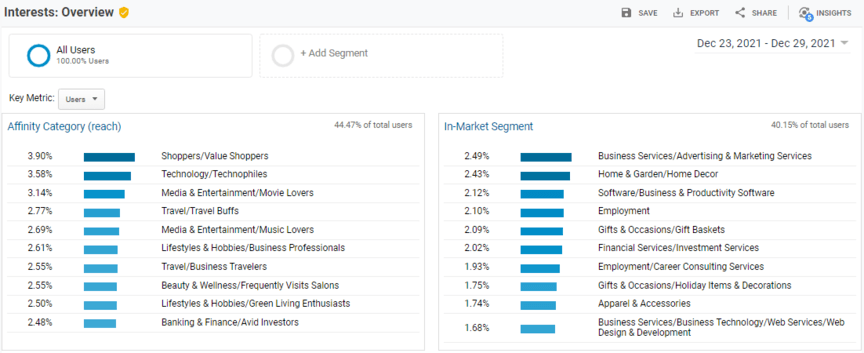Google’s Cookies Are Going Away: How to Prepare for the End of Third-Party Cookies
Chapter 2 in our Data-Driven Marketing Guide
Welcome to chapter two, data guru.
In Chapter 2 of our Data Driven Marketing Guide, we’ll cover the following topics:
- Why are Google’s cookies going away?
- What to know about third-party cookies going away
- How will the removal of cookies affect marketing?
- How to prepare for the end of third-party cookies from Google
- What are third-party cookies?
For years, brands have been using data to learn more about their audience and create targeted ads that reach their ideal consumers and prospects. But now that Google’s cookies are going away, you might be wondering how the end of third-party cookies will affect marketing.
Luckily for you, this chapter will take a deep dive into the deprecation of third-party cookies by Google, including how the removal of cookies will affect marketing. This chapter will also explore how you can prepare for the death of third-party cookies so that you can still collect valuable data to boost sales and revenue for your business.
Why are Google’s cookies going away?
Although other search engines like Firefox and Safari have already phased out third-party cookies, Google first announced its intentions to phase out third-party cookies from its browser and extensions in 2020.
Google announced its planned removal of cookies in hopes of creating a more privacy-first web experience. While Google strived to enable brands to use third-party data to create more relevant advertisements for users, third-party cookies have ultimately led to an abundance of individual user data accessible to thousands of brands and companies.
As a result, more than 72% of users feel that advertisers and companies are tracking almost everything they do online. Because Google wants to provide users with the best online experience, the company has decided on a gradual deprecation of third-party cookies to create a more private web browsing experience.
3 things you need to know about third-party cookies going away
Now that you know the answer to the question, “Why are Google’s cookies going away?” let’s dive into some more details about how Google will track user data in a cookieless future:
1. Google isn’t phasing out all cookies
Fortunately, Google isn’t planning to phase out all cookies. So, if you think you won’t be able to collect any user data for your marketing campaigns, you can rest easy. Google will continue to support first-party data on its ad platforms, so you can continue to learn more about your website visitors.

First-party data enables you to directly collect data from your website visitors, such as:
- The pages they visit on your website
- How much time they spend on your website
- Their demographics
- And more
That means you can continue to track user behavior on your own website with first-party cookies. As a result, you can still learn essential information about your audience to create effective digital marketing strategies that will drive impressive results for your business.
2. Google will continue to track user behavior
While Google announced they want to create a more private Internet experience, that doesn’t mean they are entirely finished tracking user behavior online. Instead of monitoring users individually, the tech giant is investing in alternatives to track data from groups of consumers with their Federated Learning of Cohorts (FLoC).
With FLoC, Google will keep track of a users’ browsing habits across the Internet and then place the user in various audiences, or cohorts, based on those habits. In other words, FLoC will track groups of users instead of individuals.

As a result, advertisers can create ads targeted to specific groups of consumers who share common interests instead of individual users.
3. Google’s third-party cookie removal leaves room for new and innovative advertising methods
If you currently rely on third-party cookies for your advertising strategies, you might be thinking the end of third-party cookies could harm your future marketing results. However, the death of third-party cookies leaves plenty of room for new and innovative advertising methods that can increase sales and revenue for your business.
Since Google’s announcement, many brands have started seeking alternatives that can help them create personalized marketing messages that will resonate with their target audience. Data management platforms also seek new tools and strategies that will enable businesses to learn more about their audience.
So, while third-party cookies going away is causing many brands to leave behind a valued advertising strategy, the phase-out will ultimately enable more businesses to reach their audience with better-personalized ads in less intrusive ways.
How will the removal of cookies affect marketing?
So, what does the removal of cookies mean for the future of digital marketing and advertising?
Although the phase-out will undoubtedly impact some areas of digital advertising, causing significant changes to many marketers’ strategies, it’s essential to remember that new advertising alternatives are continuously emerging.
It’s also important to keep in mind that many of your advertising campaigns won’t be impacted at all. For example, your pay-per-click (PPC) campaigns, and other strategies that use first-party data collected from your website, will still enable you to boost leads and conversions for your business.
So, what’s the bottom line? While some big changes may be underway if your marketing efforts currently rely on third-party cookies only, plenty of alternatives are available that can help you collect and leverage data to inform your digital marketing strategies to drive amazing results for your business.
How to prepare for the end of third-party cookies from Google
So, how can you prepare for the end of third-party cookies from Google?
First, it’s essential to remember that third-party cookies are going away gradually, so you have plenty of time to research alternatives and think about how you can collect valuable data about your target audience.
If you find yourself relying on third-party data to create targeted ads, it might be time to consider changing up your digital advertising strategy. For example, you can consider implementing strategies that help you collect and leverage first-party data to help you drive impressive marketing results for your business.
Do you want to know how to collect first-party data for your company? Then continue to our next chapter, where we’ll explain our favorite ways to collect first-party data from your website!
Conquer a cookieless future with data-driven marketing
Did you know that WebFX is a top digital marketing agency? That’s right — our award-winning experts are some of the best in the industry.
In just the past few years, we’ve helped clients drive over $2.4 billion in revenue with our data-driven digital marketing strategies. And we can help your business drive amazing results too.
Chat with one of our strategists today by calling 888-601-5359 or contact us online to learn more about how we can drive more revenue for your business.

 Abby Fields
Abby Fields